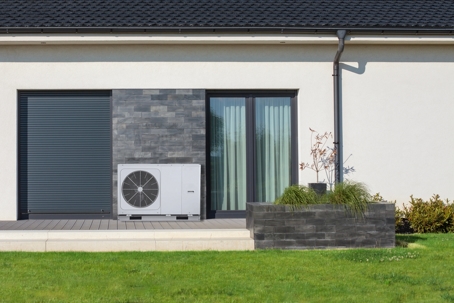Understanding SEER Ratings
Seasonal Energy Efficiency Ratio (SEER) ratings measure the cooling efficiency of heat pumps and air conditioners. A higher SEER rating signifies a more energy-efficient unit, leading to lower electricity bills and a smaller environmental footprint.
Understanding SEER ratings and government SEER requirements can help homeowners select a heat pump that balances upfront costs with long-term savings and performance. Please keep reading to learn more about SEER ratings and how to use them to choose a new heat pump.
The SEER2 Rating System
On January 1, 2023, the DOE introduced the SEER2 rating system, an updated and more stringent standard for measuring the energy efficiency of heat pumps and air conditioners. The SEER2 criteria were developed to provide a more accurate reflection of a unit's energy use under varying conditions, thereby offering homeowners and businesses a clearer understanding of potential energy savings and operational costs.
As part of the Southwest region, California's SEER2 minimum requirement for heat pumps is 14.3 (15 under the old SEER rating system).
What If My Heat Pump Doesn't Meet This Standard?
If your current heat pump does not meet the newly established SEER2 standard, there's no immediate cause for alarm. It's important to understand that the SEER2 regulations apply specifically to new units being installed. This means that your existing heat pump, if not compliant with the latest SEER2 standards, is still acceptable and can continue to operate.
However, when replacing or upgrading your heat pump, attention to the SEER2 standards becomes crucial. In addition to ensuring compliance with current regulations, a heat pump meeting or exceeding the 14.3 (15) SEER2 standard will offer better energy savings, reduced environmental impact, and potentially lower operating costs over the unit's lifetime.
Do you have questions about SEER ratings and how DOE requirements might impact your heat pump purchase? Reach out to the team at Valley Heating, Cooling, Electrical and Solar for guidance.
Heat Pump Cooling Efficiency in Warm Climates Like San Jose
Living in the San Jose area, where average summer temperatures are in the 80s or higher, you may wonder if a heat pump can effectively cool your homes during the warm months. The answer is a resounding yes.
Modern heat pumps are designed to provide efficient cooling, comparable to a traditional AC, even in areas with moderate to high summer temperatures. The higher the SEER rating, the more efficient the heat pump will be at cooling your home.
Important considerations beyond SEER ratings when selecting a new heat pump include:
- Size and capacity: A unit that's too small won't cool your home effectively, while one that is too large is generally a waste of money and can lead to uneven heating and cooling.
- Variable-speed compressors: Heat pumps with variable-speed or inverter-driven compressors adjust their cooling output to match the actual demand, leading to greater efficiency.
- Energy Star certification: Look for units that have earned the ENERGY STAR label, indicating that the heat pump meets or exceeds high-efficiency standards set by the U.S. Environmental Protection Agency.
- Installation and maintenance requirements: Proper installation and regular maintenance ensure your heat pump operates efficiently. Turn to our qualified heat pump installation team for top-quality service.
- Additional features: Programmable or smart thermostats can enhance your heat pump's efficiency and convenience. Talk to the team at Valley to discuss your options.
By considering these, you can ensure you select a heat pump that meets the SEER2 standards and fits your unique cooling needs, providing efficient and effective performance throughout the warmest months.
Ready to install a new heat pump? Contact us online to get started.

